Why the parser using the rules below returns an empty container? There're 3 rules. One is for parsing a string of characters except double quote, the second parses a pair (e.g. "col1" : 2) and the third parses the vector of such pairs. The ouput of the program below in MSVS2012 is
parse success
result: '' : 0
result: '' : 0
result: '' : 0
.
namespace parsers
{
spirit::qi::rule< iterator, column_name_t() > quoted_string =
spirit::qi::lexeme["\"" >> +~spirit::qi::char_("\"") >> "\""];
spirit::qi::rule< iterator, column_and_aggregate(), spirit::qi::space_type > agg_pair =
quoted_string//::boost::bind( &apply_col_and_aggr_visitor, spirit::qi::_val, spirit::qi::_1 )]
> ':'
// A rule validation technic is used below.
> spirit::int_[spirit::qi::_pass = (spirit::qi::_1 >=AVG && spirit::qi::_1<=SUM)];//::boost::bind( &apply_col_and_aggr_visitor, spirit::qi::_val, spirit::qi::_1 )];
spirit::qi::rule< iterator, column_and_aggregate_container(), spirit::qi::space_type > aggregates_parser =
'{'
> agg_pair/*[phoenix::push_back(spirit::qi::_val, spirit::qi::_1)]*/ % ',' // N.B.!!! list-redux technic
> '}';
}
using namespace parsers;
using namespace boost::spirit;
bool doParse(const std::string& input)
{
typedef std::string::const_iterator It;
auto f(begin(input)), l(end(input));
//parser<It, qi::space_type> p;
column_and_aggregate_container data;
typedef BOOST_TYPEOF(qi::space) skipper_type;
try
{
bool ok = qi::phrase_parse(f,l,aggregates_parser,qi::space,data);
if (ok)
{
std::cout << "parse success\n";
for (auto& pair : data)
std::cout << "result: '" << pair.first << "' : " << (int) pair.second << "\n";
}
else std::cerr << "parse failed: '" << std::string(f,l) << "'\n";
if (f!=l) std::cerr << "trailing unparsed: '" << std::string(f,l) << "'\n";
return ok;
}
catch(const qi::expectation_failure<It>& e)
{
std::string frag(e.first, e.last);
std::cerr << e.what() << "'" << frag << "'\n";
}
return false;
}
int main()
{
//bool ok = doParse("{ 'column 1' : 1, 'column 2' : 0, 'column 3' : 1 }");
doParse("{ \"column 1\" : 1, \"column 2\" : 0, \"column 3\" : 1 }");
//return ok? 0 : 255;
}
template <typename it, typename skipper = qi::space_type>
struct quoted_string_parser
{
quoted_string_parser()
{
using namespace qi;
quoted_string %= lexeme['"' >> *~char_('"') >> '"'];
BOOST_SPIRIT_DEBUG_NODE(quoted_string);
}
qi::rule<it, std::string(), skipper> quoted_string;
};
template <typename it, typename skipper = qi::space_type>
struct aggregates_parser : qi::grammar<it, column_and_aggregate_container(), skipper>
{
aggregates_parser() : aggregates_parser::base_type(aggregates_parser_)
{
using namespace qi;
agg_pair %= quoted_string_parser<it,skipper> > ':' > int_[_pass = (qi::_1 >= AVG && qi::_1 <= SUM)];
aggregates_parser_ = '{' > agg_pair % ',' > '}';
BOOST_SPIRIT_DEBUG_NODE(aggregates_parser_);
}
private:
qi::rule<it, sql_faggregate(), skipper> faggr;
qi::rule<it, column_and_aggregate(), skipper> agg_pair;
qi::rule<it, column_and_aggregate_container(), skipper> aggregates_parser_;
};

messy"creative" code organization: it shows you **exactly** how you _might_ do things when you don't want to do a proper grammar struct. I don't _recommend_ doing this, obviously.) – sehe Jun 29 '13 at 23:28